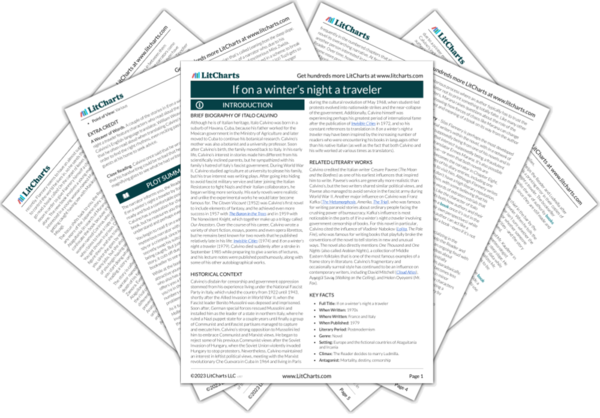Like most story fragments in the novel, this one raises more questions than it answers. It’s possible that “Faustino Higueras” is a son of Anacleta’s with the same name as her brother—the man references Nacho touching his sister, and Nacho touched Amaranta, not Anacleta (the sister of the original Faustino Higueras). Alternatively, it’s possible that Faustino Higueras did indeed rise from the grave, but he has mistaken Nacho for his father (since Nacho resembles his father, Don Anastasio Zamora, who did indeed touch Anacleta). The ending of this story further illustrates how difficult it is to discover the truth.


